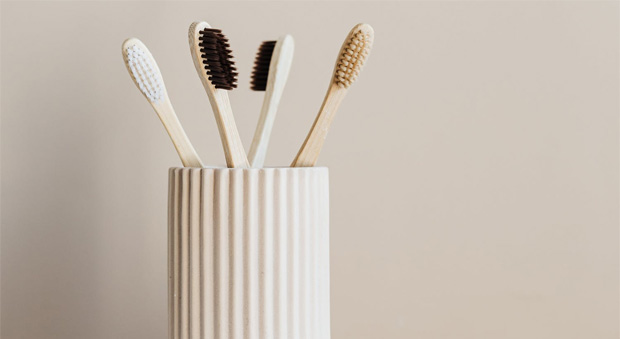How to Prevent Tooth Sensitivity

How to Prevent Tooth Sensitivity
Many people suffer from the irritating problem of tooth sensitivity. Life can be terrible when one eats or drinks anything hot or cold and has a sudden, severe ache. Luckily, there are sensible strategies to stop it from running across a continual concern. Emphasizing basic behaviors and doable actions can help you save your teeth and enable you to enjoy your preferred foods without pain. This guide will teach you everything you need to know about how to prevent tooth sensitivity.
Find Out Why Tooth Sensitivity Occurs
As protective enamel wears away on teeth, discomfort results. Acting as a shield, enamel covers the delicate layers underneath. Once it’s damaged, the underlying dentin shows and causes discomfort.
Acidic meals, vigorous brushing, and teeth grinding are typical offenders. Gum recession is another element since it leaves tooth roots vulnerable. Knowing these triggers enables you to act to stop them. Since teeth cannot heal independently, early identification of the issue is vital to prevent further harm.
Others are also genetically inclined to sensitivity. Naturally sensitive teeth or thin enamel might aggravate the problem. Understanding your particular hazards will help you to approach prevention. Talking to your dentist will enable you to find the underlying reason for sensitivity and customize treatments for your requirements.

Pick the Correct Toothbrush
A soft-bristled toothbrush can change things. Stiff brushes grind down enamel and aggravate gums, while soft bristles are damage-free and clean efficiently.
Instead of vigorously scrubbing, brush softly in little, circular strokes. This method preserves enamel while removing plaque. Changing to an electronic toothbrush with a pressure sensor will also help prevent overbrushing. Over time, these mild behaviors help retain enamel and stop gum recession, both essential in avoiding sensitivity.
Many electric toothbrushes come in several modes, including one for sensitive teeth. Though initially costly, a good-quality toothbrush pays off for gum and teeth protection. Combining it with the correct brushing method guarantees the best results.
Select a Toothpaste Suited for Sensitive Teeth
Specifically, tailored toothpaste is meant to lower sensitivity. These products include stannous fluoride or potassium nitrate, which block nerve pain impulses. Regular use brings relief over time.
Steer clear of harsh whitening toothpaste. If in doubt, get advice from your dentist. Sensitivity-oriented toothpaste also strengthens enamel, adding another layer of protection. This especially helps if enamel has degraded due to aggressive brushing techniques or acidic foods.
Certain sensitive toothpastes have other advantages, such as brightening or cavity protection. Choose items that fit your particular need, and always closely review labels. Although these could show apparent changes in weeks, tenacity is vital. Regular use increases enamel strength and, over time, helps to ease pain.

Consider Your Diet
Acidic foods and beverages are among the leading causes of enamel loss. Over time, citrus foods, vinegar-based sauces, and fizzy drinks can erode teeth. Try to cut back on these and wash your mouth with water following meals.
Add foods heavy in calcium and phosphorus. Cheese, milk, and leafy greens naturally strengthen enamel. A balanced diet helps your body and is essential for your teeth. Eating crisp veggies like celery and carrots can also increase saliva generation, balancing acidity in your mouth.
Another significant issue is sugary drinks and snacks. Sugar fuels the germs in your mouth, producing acid and plaque. When appetites strike, choose better options. Your diet can clearly affect your ability to keep strong teeth, even in small ways.
Guard Against Grinding Teeth
Grinding your teeth, particularly in sleep, can seriously destroy enamel—many grind without even recognizing it, resulting in an aching jaw or headaches when you wake up.
One custom-made mouthguard from your dentist can stop grinding. It eases wear and cushions your teeth. Techniques for stress management can help since tension drives grinding most of the time. Using relaxation techniques or getting therapy for persistent stress will help your general health and dental condition.
Another problem to watch out for is daytime clenching. You can avoid long-term injury by being aware of this behavior and deliberately relaxing your jaw. Your dentist might also suggest particular exercises meant to lower jaw stress.

Plan Frequent Dental Visits
You should see your dentist often. Professional cleanings remove tartar and plaque that are not easily controllable at home. Your dentist can also look for early gum problems or enamel wear.
Book an appointment without waiting until you start to suffer. Early intervention helps prevent minor problems from becoming more severe. Give dental visits top priority every six months. During these appointments, your dentist might additionally treat enamel with fluorides to strengthen it and lower sensitivity.
Regular X-rays allow one to monitor any underlying issues that are not immediately obvious. This proactive method helps you avoid unanticipated irritation and maintain the finest possible condition of your teeth.
Prevent Whitening Product Overuse
Although everyone wants a perfect smile, overuse of whitening agents could damage teeth. Strong chemicals included in many of these products erode enamel. Correct usage of even at-home whitening strips or gels can result in sensitivity.
If necessary, choose expert whitening. Dentists apply safe techniques meant to reduce sensitivity risk. Always pay close attention to directions and try not to overindulge. A great smile is not worth giving up your enamel or going through protracted pain.
Some whitening creams also contain abrasive particles. These can damage the surface of your teeth, increasing their sensitivity and staining tendency. If you find that whitening has raised your sensitivity, pause and concentrate on enamel-strengthening products for a bit.

Correct Floss and Brush
Good dental care is the basis for avoiding tooth sensitivity. Brush your teeth for two minutes twice daily, and floss daily to clear food bits between your teeth.
The improper approach can cause more damage than benefit. Steer clear of sawing motions while flossing to preserve gum integrity. Be careful but aggressive to maintain healthy teeth and gums. Good brushing and flossing help avoid the accumulation of plaque that can cause gum problems and enamel degradation.
If regular flossing seems awkward, consider using interdental brushes. These little brushes clean between teeth without aggravating delicate gums. Try several instruments to see which ones suit you most.
Keep Up Plenty of Water
Water not only hydrates but also helps your teeth. Drinking water removes enamel-eroding bacteria, carbohydrates, and acids. It also increases salivation, which naturally shields teeth.
Stow a water bottle with you all day. A short wash with water following meals or snacks can help lower the sensitivity risk. Tap water, often including fluoride, offers extra defense for your teeth.
If dry mouth runs in your family, staying hydrated is crucial. Saliva plays a significant role in maintaining oral health, and teeth are more easily damaged without it. Regular water drinking guarantees a moist and healthy mouth.

Quickly Treat Gum Issues
Gum recession reveals the roots of your teeth, therefore compromising their sensitivity. Left untreated, gum disease can aggravate this condition.
Don’t discount bleeding gums or sensitivity along the gum line. To address gum disease, Our dentist at Mayfield Dental could advise scaling and root planning. Gum grafting surgery can protect in extreme circumstances.
Using a soft toothbrush and maintaining good oral hygiene help prevent gum issues from starting. Early therapy is always more successful; hence, if you believe there is a problem, do not wait to get help.
Cut Snacking
Regular munching exposes your teeth to continual risk. Every time you eat, acids build in your mouth, attacking the enamel. Cutting snacks between meals allows your teeth time to heal.
If you snack, consider crunchy veggies, cheese, or nuts—all of which are tooth-friendly foods. Steer clear of sticky meals that cling to teeth and sweet snacks. Good snacks improve general health and help protect teeth.
Another good habit is chewing gum without sugar after meals. It increases salivation, which neutralizes acids and builds enamel. This simple behavior helps significantly in avoiding sensitivity.

Rinse with Fluoride Mouthwash
One very effective friend in preserving your teeth is fluoride. A fluoride mouthwash helps undo early stages of damage and improves enamel.
Use it following brushing for best results. This extra protection layer helps keep your teeth strong and lowers sensitivity. See your dentist about the ideal fluoride products for your needs. Fluoride treatments are very beneficial if you run a significant risk of enamel loss.
Remember to watch children to make sure they do not ingest fluoride mouthwash. Correct use guarantees efficacy and safety for every age.
Conclusion – How to Prevent Tooth Sensitivity
Though it’s not tricky, preventing dental sensitivity requires constant maintenance. Little changes, such as selecting the correct toothpaste and avoiding acidic foods, can make a significant difference.
See your dentist if sensitivity continues even with these initiatives. They can guarantee no underlying problems and offer customized remedies. Now, protect your teeth so you may savor the minor pleasures of life free from suffering. A proactive attitude today results in fewer issues and more smiles tomorrow.
Guest Article.




